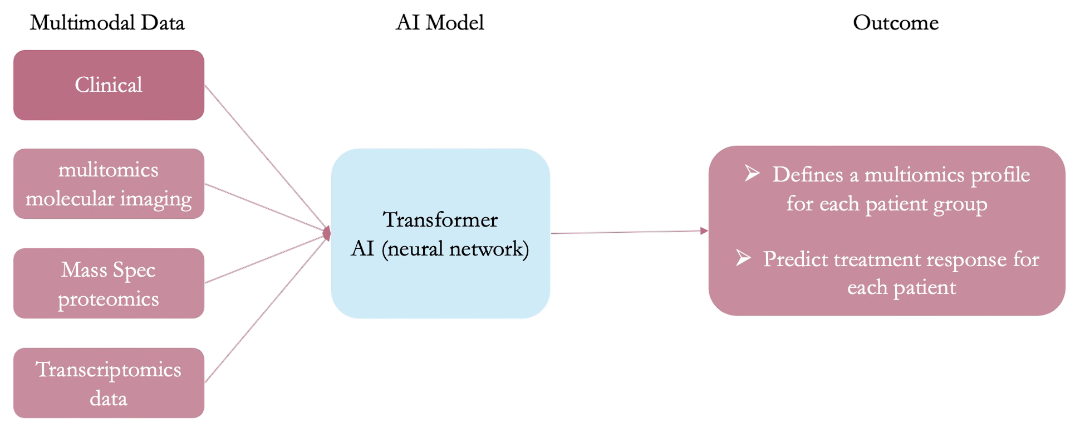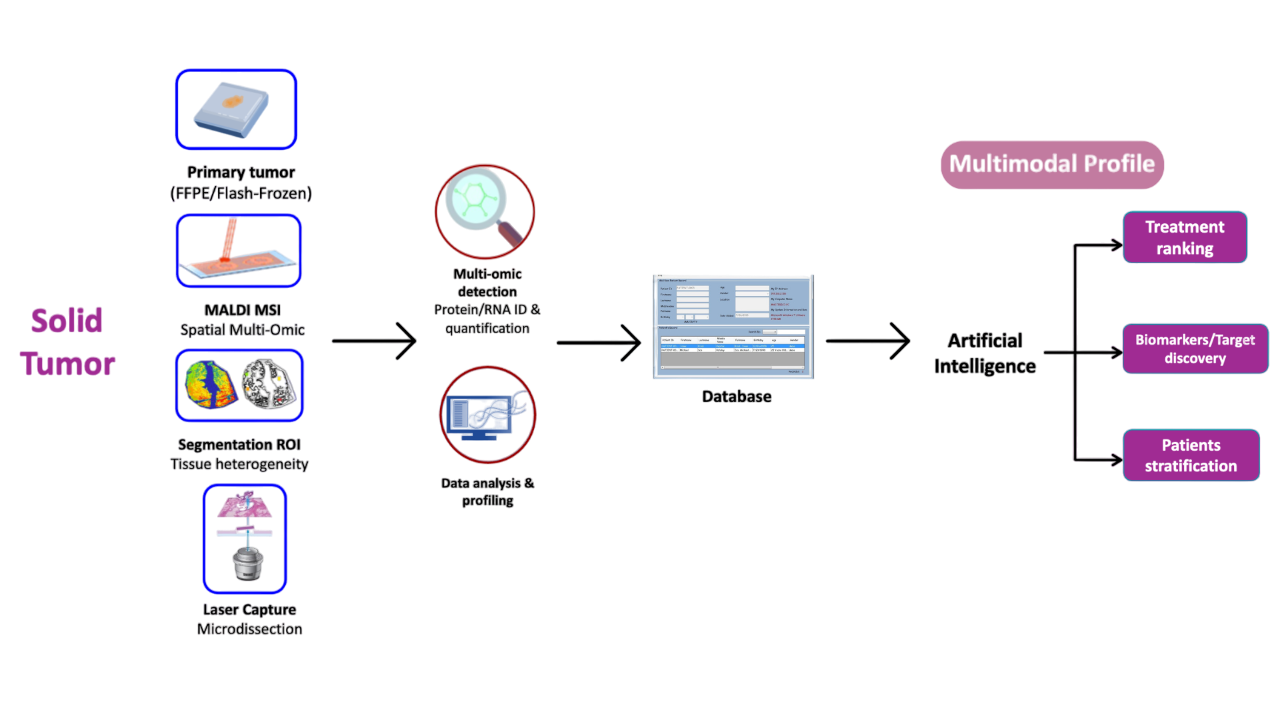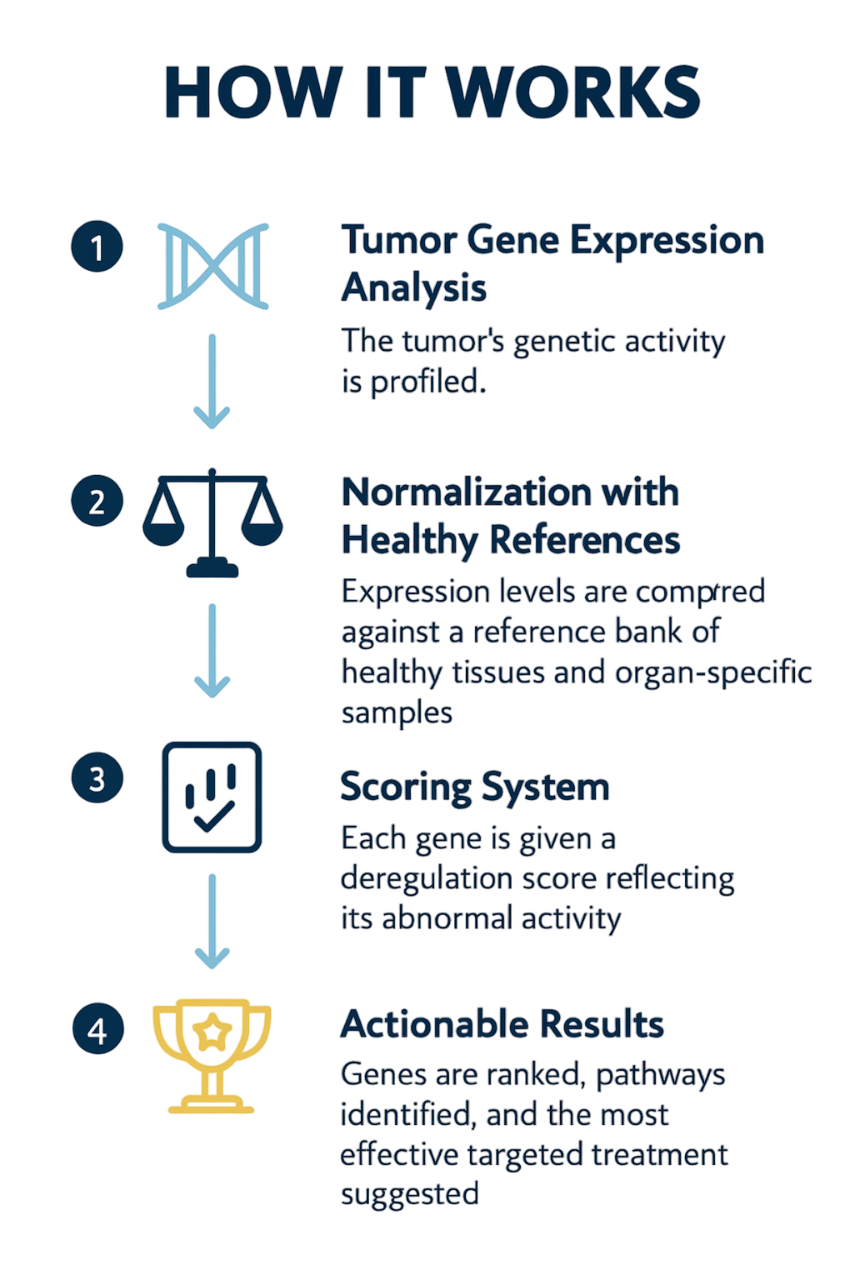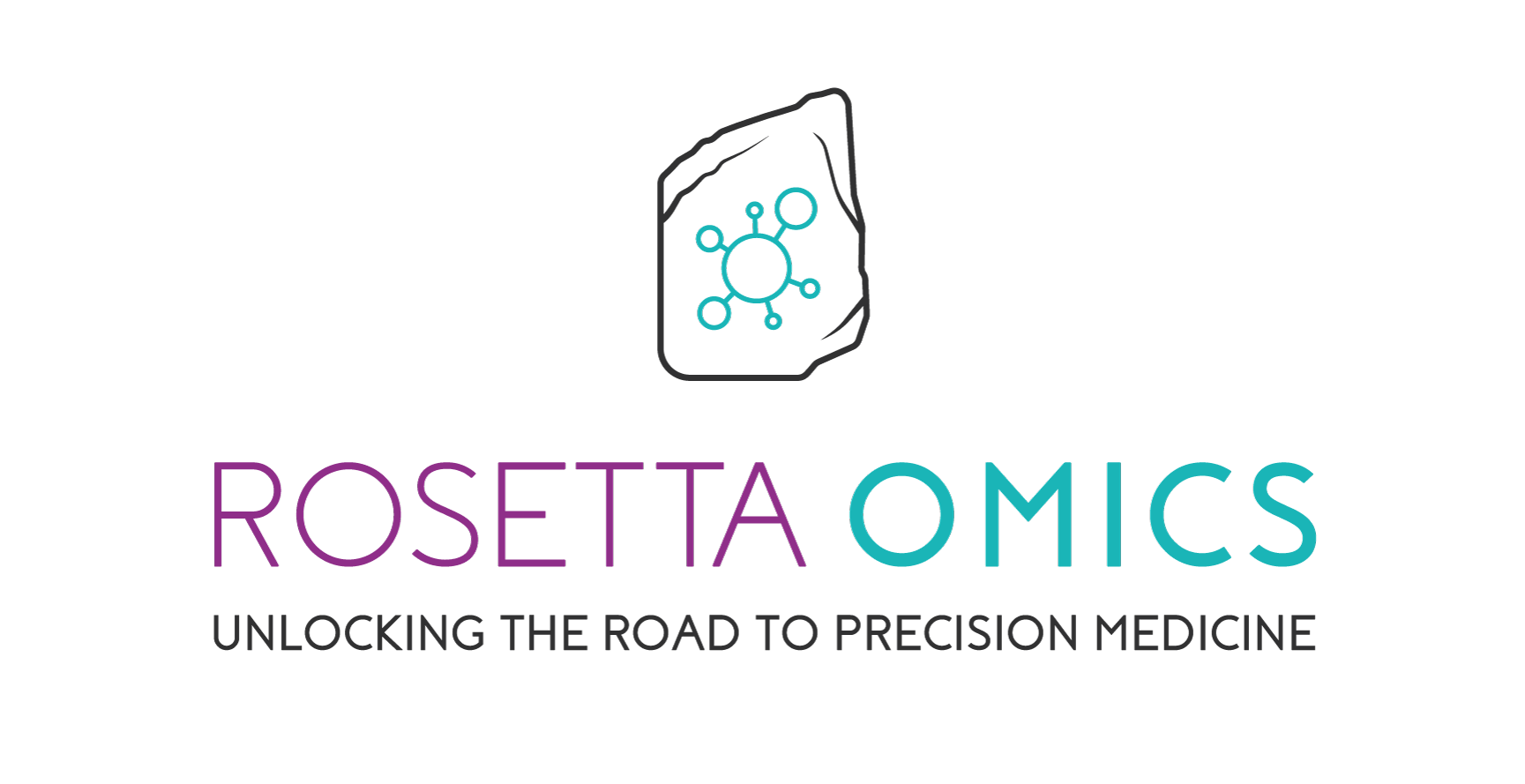AI-eNABLED MULTIOMICS PLATFORM
Next Generation precision-medicine Tools

Spatial and Proteomics Based solutions
Our methodology includes the use of common conductive slides with analytes study while keeping protein integrity and uses consecutively the following technologies:
-
- Mass spectrometry imaging (MSI) by Matrix Assisted Laser Desorption Ionization (MALDI-MSI) for fast spatial omics pre-screening of proteins and/or metabolites.
-
- Laser Capture Microdissection (LMD) to enable the selection of specific tissue areas allowing subsequent molecular identification.
-
- Liquid chromatography coupled to tandem mass spectrometry (LC-MS/MS) allowing high resolution peptides identification and label-free quantification
-
- Artificial Intelligence algorithms providing full analysis reports of tumor tissues and patient profiles with therapeutic options rankings.

Transcriptomics Based Solutions
A New Biomarker Analysis Technique
We’ve developed a complementary biomarker analysis solution that brings a new level of precision to cancer diagnostics and treatment selection.
Seamless Integration
Our solution can be integrated into existing diagnostic and e-Health platforms.
Better Data
Standardized gene expression analysis ensures more relevant results
Targeted Treatments
Identifies deregulated pathways to guide effective therapy selection.

“Our normalized expression score provides more predictive insights into treatment response than raw expression data, enabling truly personalized cancer care.”
For Hospitals & Clinics

Rosetta Omics platform can be used by oncologists, clinicians, and pathologists to better diagnose, stratify and rank first line treatment options for cancer patients.
Our platform offers physicians and easy access to spatial omics, for lipids and/or metabolites pre-screening as well as high resolution proteomics and genomics profiling, from one unique tissue slide per patient.
Our products corresponds to a biostatistic process and AI tools providing full analysis reports of tissue area/ROI (list of proteins/metabolites, label-free quantification) and patient (significant biomarkers, tumor profile…).
For Pharma & Biotechs

Thanks to this approach, which stands out from the problems of antibody specificities, we can identify known and new biomarkers of clinical interest allowing faster diagnostic validation, new therapeutic strategies/combinations and better tumor classification for pharmaceutical companies.
Also providing new insights to discover new targets for drug development, especially as protein-level aberrations that are sometimes not observed by genomics could represent cancer vulnerabilities that may be targeted in precision oncology.
